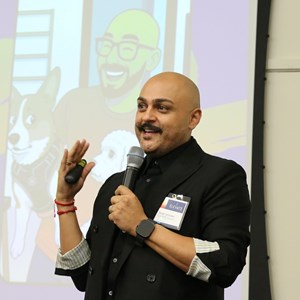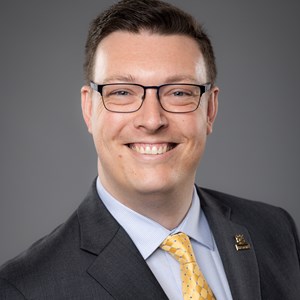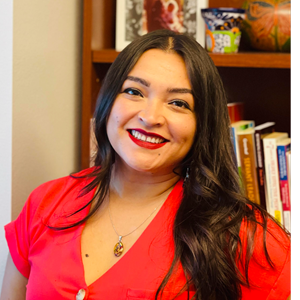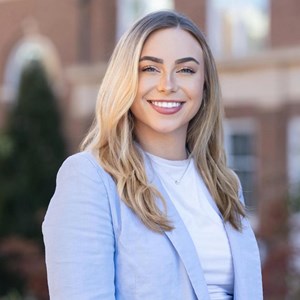Local and Community Engagement Committee
The Local and Community Engagement Committee (LCEC) will guide ASHE in centering Indigeneity, space, place, and people by engaging with local Indigenous communities, local BIPOC communities, and higher education institutions in the location of the annual conference and by developing resources and opportunities for conference attendees to more fully engage with the conference location.
Written by Theresa Ambo & Stephen Santa-Ramirez, 2026 Local and Community Engagement Committee Co-Chairs
The Local and Community Engagement Committee (LCEC) was formalized in 2021 under the leadership of ASHE President Darin Stewart to center land, space, and place in the conference location through engagement with higher education institutions and Black, Indigenous, and People of Color (BIPOC) communities. Through educational resources and engagement opportunities, the LCEC provides conference attendees with meaningful avenues for learning and reflection about, with, and alongside the lands and communities where ASHE is hosted.
This year, we will be returning to San Juan, Puerto Rico, an archipelago that includes what is currently known as Puerto Rico, Vieques, Culebra, and other uninhabited islands. Indigenous Taíno inhabitants refer to these lands as “Boriken,” meaning “land of the great lords.” Boriken is the world's longest-standing colony, occupied by the Spanish since 1493 and contested for over 500 years. Similar to other colonial projects across the globe, including the U.S., disease and violent enslavement dramatically impacted the lives and livelihood of the Indigenous population. The Spanish imperial projects also brought enslaved Africans to work the mines and later the sugar cane fields. This fraught history is reflected today in the blending of Taíno, West African, and European cultures, and is evident in the food, language, and music of present-day Puerto Rico.
In 1898, U.S. forces landed in Guánica, Puerto Rico, and claimed the former Spanish colony following the Spanish-American War for its strategic position in the Caribbean. Puerto Rico’s relationship to the United States, rooted in colony and empire, would remain contested as policymakers grappled with the legal status of an unincorporated territory. At the same time, a nationalist movement fought for Puerto Rico’s independence, continuing the struggle for autonomy from Spain. Puerto Ricans would receive U.S. citizenship in 1917, with the intention that Puerto Rico serve as the democratic example in the Caribbean. However, the President of the United States appointed the governor of Puerto Rico until 1948.
The higher education system in Puerto Rico was set up to mirror that of the U.S. In 2018-19, about 236,000 students were enrolled across 137 institutions—greater than 12 states.[iii] As U.S. citizens, students are entitled to Title IV funding, including Pell. With comparatively low tuition and fees ($3,620 at the University of Puerto Rico, Rio Piedras in 2019-20), Pell grants fully covered tuition at the flagship institution. In addition to having a sizeable higher education system, many of the four-year institutions are top producers of Latinx STEM degrees in the U.S.[iv]
However, the issues of sovereignty and status are far from resolved. In 2014, under the weight of onerous decades-old fiscal policies, Puerto Rico’s governor announced its $72 billion debt was “not payable.”[v] To address the fiscal insolvency of Puerto Rico, in 2016, the United States Congress imposed a fiscal oversight board, the Financial Oversight and Management Board for Puerto Rico (aka La Junta), that holds authority over Puerto Rico’s budget and financial decisions. The creation of this unelected board has amplified and made painfully visible Puerto Rico’s colonial status. Indeed, Puerto Rico’s higher education system is the only one in the United States subject to U.S. Congressional rule.
The U.S. government’s underwhelming and irresponsible response to the devastation wrought by Hurricane Maria in 2017 and earthquakes in 2019 has further underscored Puerto Ricans’ limited citizenship and status within a U.S. context. As recent as 2019, the United Nations’ special commission on decolonization would note “with concern the way in which political insubordination impedes Puerto Rico’s ability to tackle its serious economic and social problems...”[vi]. These conditions have led to mass migrations to the mainland US and challenges for the higher education system. Postsecondary enrollments decreased by 24% over the last five years, while tuition, under the draconian measures imposed by the U.S. fiscal board, increased by 87% at public four-year colleges.[vii] These changes to access and affordability have been met with staunch protestations from college students and faculty.
Puerto Rico has long been used by the United States for military and geopolitical purposes, including weapons testing on Vieques and Culebra, which left lasting environmental and health consequences. Despite U.S. citizenship since 1917, Puerto Ricans continue to experience limited self-determination and federal control over local governance and economic policy through La Junta. The inequitable federal response to disasters such as Hurricane María and subsequent earthquakes highlights the structural inequalities inherent in this colonial relationship. Further, the ongoing U.S. military and political maneuvers in the broader Caribbean and Latin American region underscore how Puerto Rico’s place in U.S. power projection remains deeply entangled with a long history of interventionist policy. In January 2026, the United States executed a military operation in Venezuela that resulted in the capture of their President Nicolás Maduro—a move justified by the U.S. on narco-terrorism and democracy promotion grounds but widely interpreted as a forceful assertion of American influence aimed at regime change and access to strategic resources like oil. The U.S. administration’s framing of this operation and its aftermath—where senior officials openly discussed “running” Venezuela and leveraging its oil infrastructure—revives colonial-style ideologies of territorial and economic control across the region. Puerto Rico, routinely overlooked in national conversations despite its critical role as a military staging ground and strategic outpost in Caribbean geopolitics, is a stark example of how U.S. policy continues to extend power over peoples and lands without full political representation, echoing patterns of domination that rooted the island’s colonial status in the first place.
As the ASHE community prepares to travel to Puerto Rico, we recognize the importance of acknowledging the island’s tenuous and contested relationship with the United States in the spirit of this year’s theme, “Land, Memory, and Power: Collective Movements to Revolutionize Higher Education.” As visitors, educators, and scholars, we carry a responsibility to engage Puerto Rico’s history, honor its people, and remain mindful of our relationships and obligations to place. This includes striving to be in right relation with land, water, and creation, and embracing the opportunity to learn with and be in community with the people of Puerto Rico in ways that affirm justice, sovereignty, and belonging.
____________________________________________
[i] Downes v. Bidwell, 182 U.S. 244, 287 (1901)
[ii] Ibid.
[iii] IPEDS 12-month enrollment 2018-19, all sectors, Title-IV Eligible institutions
[iv] https://www.edexcelencia.org/media/488
payable.html?_r=0
[vi] https://www.un.org/press/en/2019/gacol3337.doc.htm
[vii] Enrollment: Comparison of 2018-19 and 2013-12 enrollment, all sectors, Title IV-eligible institutions; Tuition:
unadjusted comparison of 2019-20 and 2013-14 in-state average tuition for full-time undergraduates, PR public 4-year colleges
*Note: Some of the above text was adapted by the ASHE 2021 conference LCEC co-chairs
Conference Local and Community Engagement Committee
-
-
Stephen Santa-Ramirez
 Associate Professor of Higher Education University at BuffaloCo-Chair
Associate Professor of Higher Education University at BuffaloCo-Chair -
Alicia Castillo Shrestha
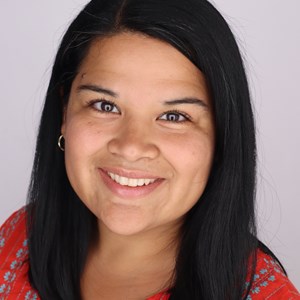 Associate Director of Conference and Events Association for the Study of Higher EducationStaff Partner
Associate Director of Conference and Events Association for the Study of Higher EducationStaff Partner -
Rosa Maria Acevedo
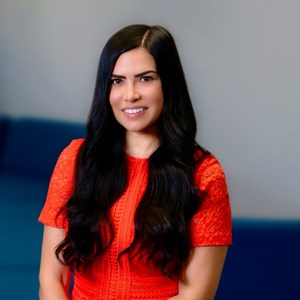 PhD Assistant Professor of Higher Education University of PittsburghMember
PhD Assistant Professor of Higher Education University of PittsburghMember -
-
Jodi Burshia
 Assistant Professor of Indigenous Education New Mexico Highlands UniversityMember
Assistant Professor of Indigenous Education New Mexico Highlands UniversityMember -
-
-
-
Devin Henry
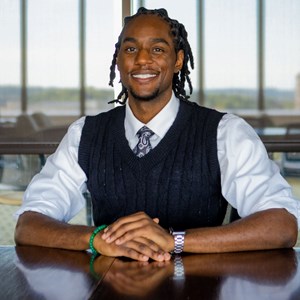 Educational Leadership and Policy Analysis Doctoral Student University of Wisconsin-MadisonMember
Educational Leadership and Policy Analysis Doctoral Student University of Wisconsin-MadisonMember -
-
-
-
-
Raymond Vidal Plaza
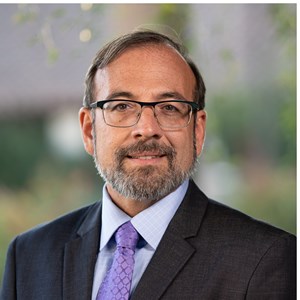 PhD Senior Director, Diversity and Inclusion Santa Clara UniversityMember
PhD Senior Director, Diversity and Inclusion Santa Clara UniversityMember -
-
J. Audra WilliamsPhD Student, Educational Policy & Evaluation Arizona State UniversityMember



